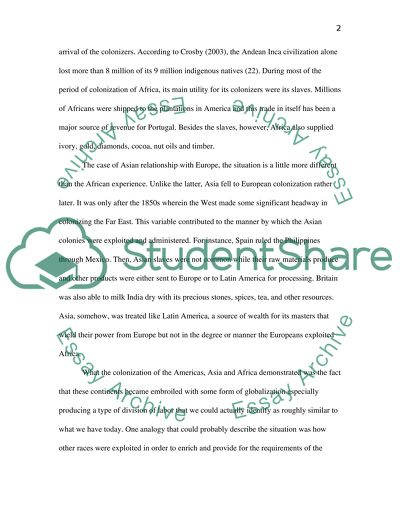Cite this document
(“Effect of Conquest of America on Europe's relationship with Africa and Essay”, n.d.)
Retrieved from https://studentshare.org/environmental-studies/1414719-effect-of-conquest-of-america-on-europe-s
Retrieved from https://studentshare.org/environmental-studies/1414719-effect-of-conquest-of-america-on-europe-s
(Effect of Conquest of America on Europe'S Relationship With Africa and Essay)
https://studentshare.org/environmental-studies/1414719-effect-of-conquest-of-america-on-europe-s.
https://studentshare.org/environmental-studies/1414719-effect-of-conquest-of-america-on-europe-s.
“Effect of Conquest of America on Europe'S Relationship With Africa and Essay”, n.d. https://studentshare.org/environmental-studies/1414719-effect-of-conquest-of-america-on-europe-s.


